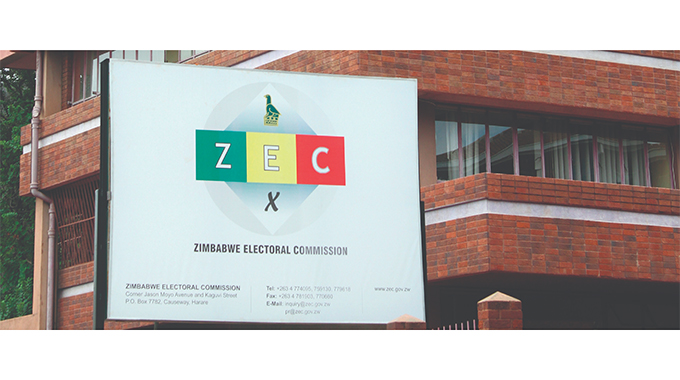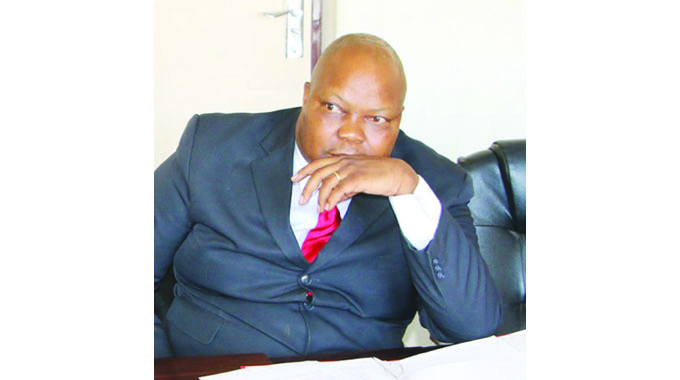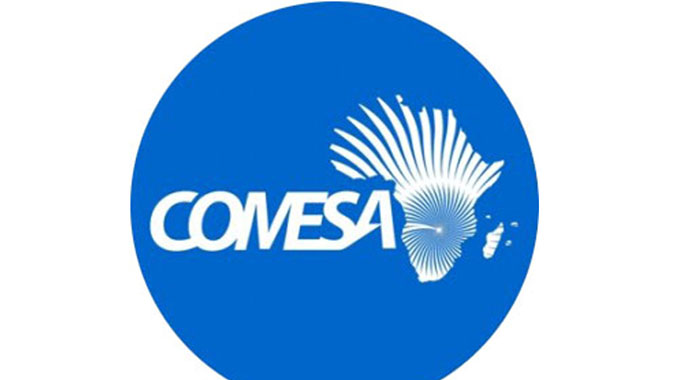Calls for redoing delimitation exercise unpatriotic, mischievous

By Dr Masimba Mavaza
Delimitation in the context of elections in Zimbabwe is the fixing of electoral boundaries, the process of dividing the country into constituencies and wards for the purposes of electing persons as constituency members of the National Assembly and as councillors of local authorities.
The law governing this process is in terms of sections 160 and 161 of the Constitution and Section 37A of the Electoral Act. So delimitation is a constitutional mandate which in Section 160 of the Constitution states that the Zimbabwe Electoral Commission (ZEC) must:
• divide Zimbabwe into 210 constituencies, for the purpose of electing Members of Parliament, and
• divide local authority areas into wards according to the number of members to be elected to the local authorities concerned.
It should be noted that the delimitation of constituencies is done only for the election of constituency members of the National Assembly. Senators and party-list members of the Assembly are elected on a provincial basis, and the boundaries of provinces are fixed by the President under the Provincial Councils and Administration Act as read with section 267 of the Constitution.
Section 161 of the Constitution sets out the way in which delimitations of constituencies and wards must be conducted.
So in short, ZEC must conduct delimitations every 10 years, as soon as possible after a population census [section 161(1)]. If a general election is held less than six months after a delimitation, the old constituency and ward boundaries must be used for the election [section 161(2)].
So far as possible constituency and ward boundaries must be delimited so that equal numbers of voters are registered in each constituency throughout Zimbabwe and in each ward of every council area [section 161(3) & (4)]. The number of voters in a constituency or ward can however vary by up to 20 per cent above or below the average to take into account the considerations mentioned in section 161(6)].
In delimiting constituencies and wards, ZEC must take into account considerations such as physical features, communications, the distribution of voters and community of interests between them [section 161(6)]. This means that a delimitation cannot be a purely paper exercise. ZEC’s officers must where necessary go out and look at physical features and must consult voters – how else are they to ascertain if there are communities of interests?
When ZEC has delimited constituencies and wards, it must send the President a preliminary report showing the new boundaries, and the President must lay the report before Parliament – i.e. the National Assembly and the Senate – within seven days. Within 14 days after that the President must refer the preliminary report back to ZEC for it to consider any issue raised by himself or Parliament [section 161(7) & (8)]. ZEC must give consideration to any issue so raised, but its decision on them is final [section 161(9)].
Once ZEC has prepared its final delimitation report it must send the report to the President, who must publish it in the Gazette within 14 days.
There is always someone throwing spanner’s in the engine of efficiency in Zimbabwe electoral process.
The delimitation process was last done in 2008 a lot of factors including bickering and unreasonable protests to delimitation contributed to the process being postponed despite a provision in the Constitution for it to be conducted every 10 years.
Now that the delimitation has been successfully completed, the very people who complained about not having delimitation process are the ones now advocating for its postponement. It is clear that those advocating for restarting of the delimitation process only want to have Zimbabwe labelled as a country which does not respect its own constitution.
Those who are in the forefront of redoing the process are the ones who shout loudly about the rule of law. By following the constitution to the letter Zimbabwe is proving that it respects the rule of law and that it is indeed a constitutional fanatic to say the most. Ironically the ones casting aspersions and dark clouds on delimitation are the ones who have demanding delimitation on constitutional grounds.
By cancelling and ordering a restart of delimitation is literally saying the old delimitation of 2008 must be used.
The advocates of redoing delimitation are counter progressive agitators of violence and seeking to undermine the Zimbabwe’s constitutionalism. If the delimitation is to be done the old delimitation will be used.
Coming from the people who are crying about electoral reforms becomes ironic.
The process has been criticised for lack of transparency and being conducted in a very short time making it almost impossible for Zec to complete delimitation of constituency boundaries before the 2023 polls. This criticism is idiotic instead of applauding ZEC for doing the job in a short time they actually question ZEC for being efficient.
The delimitation exercise had to be completed by December, so that there will be enough time (to proclaim) boundaries.
It should be noted that ZEC intensified awareness programmes on delimitation and this restored confidence in the electoral processes. To restart the process will be holding out to the people as confused indecisive system. Clamouring for re-delimitation is simply a ploy to undermine the
Zimbabwean government and to expound the evil narrative that Zimbabwe is not embracing the rule of law.
It should be noted that the boundaries are critical for the impending 2023 general elections as they will ensure that there are equal voting strengths in wards and constituencies across the country. It is a shame that many people are turning the successful delimitation into a point of conflict.
Zimbabwe conducted a census a few months ago thereby paving way for the delimitation exercise. ZEC in the spirit of transparency published its delimitation road map, the election management body has provided much detail to show stakeholders where they are at on the road map. This is not a requirement but done anyway.
Section 161(2) of the Constitution says if a delimitation of electoral boundaries is completed less than six months before polling day in a general election, the boundaries so delimitated do not apply to that election. Instead, the boundaries that existed immediately before the delimitation are applicable.
In the case of Zimbabwe, these will be the boundaries drawn in 2008, which were used for both the 2008 and 2018 general elections.
We should bear in mind that the Zimbabwe Electoral Commission (ZEC) has corrected anomalies whereby some voters, by virtue of residential addresses, were categorised as belonging to wrong local council wards now the voters role reflects a high level of accuracy.
Commonly known as ‘mis-posting’, the irregularities have been commonplace in previous polls and registration blitzes, where eligible voters from the same geographic location appear on registers in different wards. With the just-ended delimitation exercise which now awaits presidential assent, ward boundaries have, in some instances, shifted while some wards have been either extended or reduced in size.
The shifts mean some voters would fall under new wards, but without necessarily changing their voting centres. The public must take comfort in that ZEC had noted the discrepancies and likely challenges posed by the delimitation and they did the best they could in the just ended delimitation process.
It is important to note that delimitation is a fundamental process of the Electoral Cycle. The importance of demarcating boundaries is important in ensuring fair representation of the electorate. Delimitation is a technical process hence it is important that it is understood by all stakeholders. It is imperative that principles of the delimitation process which include; impartiality, equality of the vote, non- discrimination, representativeness and transparency are embedded in the legal framework, process and procedures of delimitation of electoral boundaries.
Why is delimitation so controversial in our country? The delimitation is a politically volatile issue. There is a misplaced concern by some people and several mainstream political parties. The concern has been that representation may be increased for some constituencies after the delimitation exercise, and not some thereby weakening their electoral fortunes.
The opportunity of redrawing constituencies has always been availed by the constitution. There is no constitutional luxury to conduct this important exercise without paying much heed to criticism by the stakeholders.
A new delimitation exercise will face the challenge of distribution of seats within the provinces the 210 seats will remain and are not to be increased or reduced.
After such a long time and a diligent exercise done by ZEC there is a pressing need for a careful, need to protect our constitution. We should not be forced to abandon the work already done. We must frown at those calling for delimitation to be redone, we must be alive to the fact that in the short time remaining before the next election there is no hope to re do and finish within time.
There is more reason to be brave and resist calls for redoing it over again. We must realise that those advocating for the program to be done again are planning to hurt the nation. There is a point in asking who is to blame for this situation, because it is worth noting that there are people who are bent to prove that there is disregard for the law in Zimbabwe.
As a result, it will look like there is no proper delimitation and the democratic credibility of next year’s general election will be prejudiced. This will benefit the opposition who will say that there is a Disregard for the rule of law which leads inevitably to bad governance.
They intend to use this to question the legitimacy of the winning government.
Calls for re doing of delimitation is a ploy to rig elections in seeking to have them declared illegitimate. ZEC has done its work and within the time. We should now work towards elections and stop this culture of protest for no reason.
[email protected]










Comments